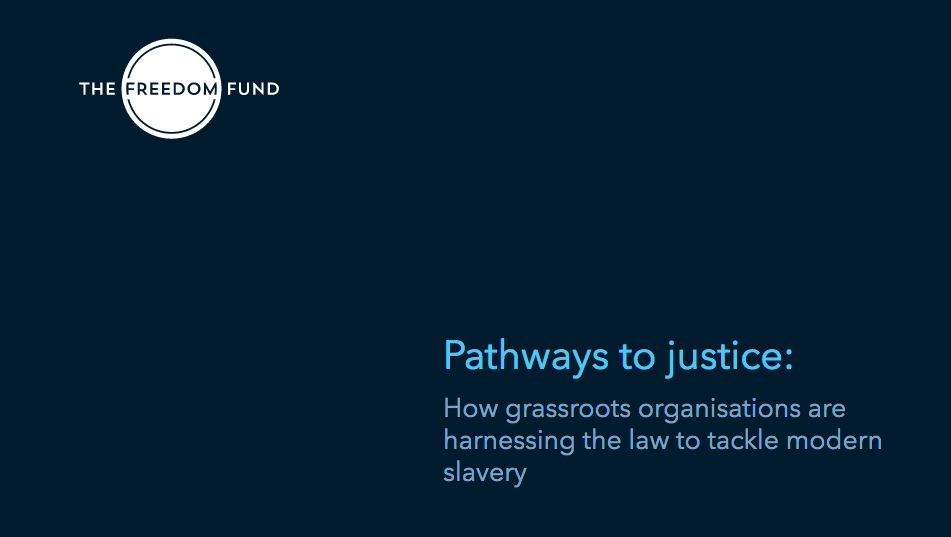
Pathways to Justice: Harnessing the Law to Tackle Modern Slavery
Modern slavery is a crime. The various manifestations of modern slavery – chattel slavery, servitude, forced labour, human trafficking, debt bondage and forced marriage – are all prohibited under international law.
Yet in 2016 approximately 40 million people were living in situations of modern slavery. In the same year, however, fewer than 10,000 perpetrators of modern slavery crimes were convicted. The gulf between these two figures highlights the immense challenges faced by the global movement to end modern slavery.
To date, governments and private donors have concentrated their assistance on efforts to bridge the gap between the number of people in situations of modern slavery and the number of people who are being brought to justice. For the most part, initiatives have focused on improving criminal justice responses to increase conviction rates and create a credible deterrent.
Yet, although these programs are critical, they are only one element of the fight against modern slavery. In essence, the anti-slavery community is only partially utilizing the potential of the law.
Alternative legal strategies – including those being delivered by organizations working on the frontlines, in areas with the highest prevalence of modern slavery – have attracted less attention and fewer resources from the global anti-slavery community. Instead of a singular focus on law enforcement, these interventions span the full ‘prevention, protection and prosecution’ spectrum and use the law in creative ways to challenge systems that allow slavery to persist. These other legal strategies, and the ways in which they have been implemented by grassroots civil society organizations, are the focus of this report. There is much to be learned from frontline NGOs that are harnessing the power of the law to tackle the scourge of modern slavery.
This report surveys the portfolio of legal work being carried out by the Freedom Fund’s NGO partners across seven modern slavery hotspots. Frontline legal interventions are classified into four key categories that respond to the issues that these organizations are trying to address – strengthening laws and regulations, supporting effective enforcement, building rights awareness and facilitating access to justice. The report focuses on the solutions that frontline NGOs have found, drawing out lessons from these interventions that are relevant to the wider anti-slavery community.
The most obvious legal challenge in modern slavery hotspots is the absence of appropriate laws. Although most countries have adopted national legislation criminalizing slavery-related practices, many lack explicit legal provisions that protect victims or prevent forced or bonded labor. To address these gaps, Freedom Fund partner NGOs are collaborating to push for legislation that responds to the needs of communities vulnerable to slavery. While there have been many recent successes in this area, these campaigns require a long-term time horizon, patient funding and donors that are comfortable with the non-linear results that stem from advocacy.
Where laws do exist, their impact is limited by systematic failures to implement and enforce them. The effective operation of the law requires a legal system composed of actors and processes that can The Freedom Fund interpret, advocate and ensure its enforcement. When it comes to modern slavery, government responses are characterized by insufficient resource allocation and lack of knowledge and understanding among officials charged with the implementation of laws and regulations. Our NGO partners are training officials to increase awareness of trafficking and related crimes, improve response rates and encourage the adoption of victim-sensitive practices. And they are collaborating with local government to activate prevention and protection systems, connecting survivors to services to aid their recovery.
Read the full report here
